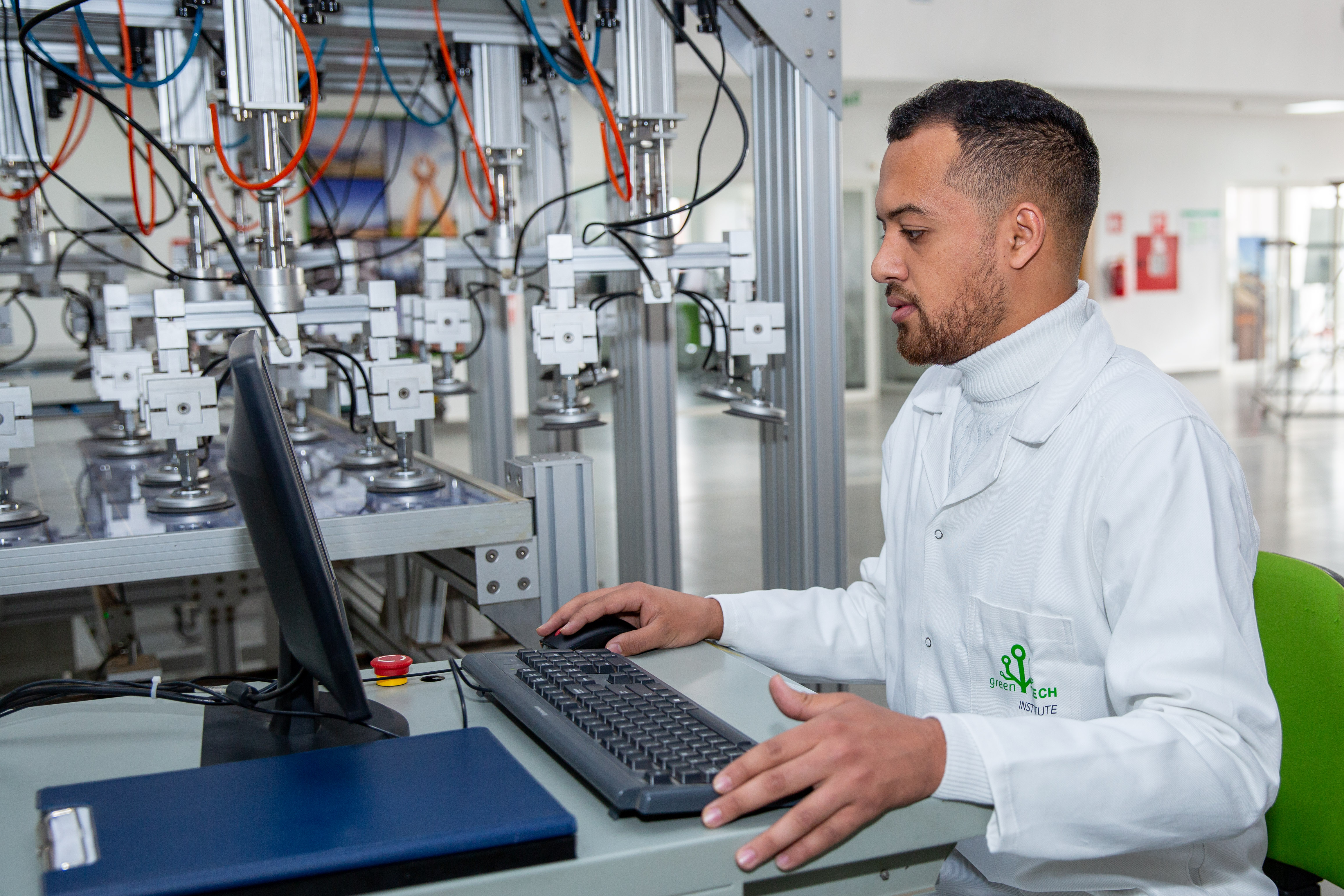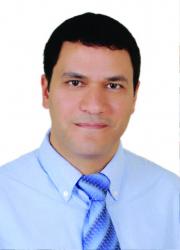Master' Program Electrical Engineering for Renewable Energies and Smart Grids (RESMA)



The Master’s program in Electrical Engineering for Renewable Energies and Smart Grids is designed to meet a growing demand for highly qualified, competent profiles in energy management systems, with a spirit of innovation, able to adapt to technological changes in this area. These competencies are actively sought by network operators, for whom the implementation of increasingly efficient technologies in smart grids makes the network more adaptable and increases the resilience of the electrical system. This optimizes the level of reliability and quality of the power supply and facilitates the insertion in the grids of new means of production of distributed energy, particularly of renewable origin: wind, solar, fuel cell...
Graduates will also be able to advise and assist industrial consumers in their quest for energy efficiency and effectiveness and become real players in the energy system.
This program aims first of all to inculcate the fundamental and technical notions of the field of electrical engineering and renewable energies, while developing the management of technical projects, namely the designing, dimensioning, installation and maintenance of renewable energy systems. The integration of these techniques requires the mastery of tools for systems optimization and management, through the use of new information and communication technologies.
This proposal of a Master’s program fits perfectly into the development plan of the UM6P and the Moroccan energy strategy for the development of these energy resources by building sustainable expertise and a real scientific and technical know-how in the field of green energy.
Thus, the program is designed to develop skills in electrical engineering and, subsequently, master the integration of renewable energies and smart grids within power grids. The program deals with various issues mainly related to the modernization of existing electricity networks, the deployment of renewable energies, the optimization of decentralized production, as well as the security of energy supply and the limitation of global warming that have become Moroccan and African issues.

Upon completion of the program, students will gain the knowledge and skills necessary to participate effectively in the design, development and management of smart grid projects, as well as the implementation of renewable energy systems.
Among the skills targeted, we can state:
-
Modeling and simulation of energy systems taking account of all extrinsic conditions;
-
Analyze the robustness, dependability and eco-efficiency properties of energy management systems;
-
Engineering and deployment skills of smart grid technologies;
-
Measurement, analyzing and managing distributed energy production systems and the implementation of coherent energy mixes;
-
New ICT deployment skills to increase the penetration of renewable energies into the electricity grid;
-
The skills to apply a structured approach for the definition, development and deployment of projects for the realization of industrial electrical installations;
-
The skills to implement energy storage solutions and Power to X.
In addition to these technical skills, students will also be able to acquire transversal competences in "soft skills" (communication, teamwork and English) and "business skills" (innovation, entrepreneurship, project management, ...) allowing them to interact effectively in their future working environments.

Pr. Ahmed CHEBAK
Pr. Ahmed CHEBAK is a professor of electrical engineering and electromechanics at UM6P and Pedagogical Director of the Green Tech Institute (GTI). He obtained his Ph.D. and M.Sc from Laval University in Canada, and his engineer diploma in electromechanics from the National School of Mineral Industry (ENIM) in Rabat.
Pr. CHEBAK was a fulltime professor at the University of Quebec at Rimouski in Canada, and a researcher and lecturer at Laval University. He was also a member of the educational committee of the Montreal Institute of Electrical Energy Engineering (IGEE). His research interests focus on renewable energies, electric, hybrid and autonomous vehicles, the study and design of electromechanical systems, electric machines and power electronics, heat treatment by induction and by laser and laser welding.
Green Energy Park
École Polytechnique de Paris
IRESEN
| S1 | Module 1 | Energetic Thermodynamics |
| Module 2 | Signals and Systems & Industrial Instrumentation | |
| Module 3 | Thermal Transfers & Heat Exchangers | |
| Module 4 | Electrical Systems | |
| Module 5 | Applied Mathematics & Numerical Methods | |
| Module 6 |
Languages and Communication |
| S2 | Module 7 | Renewable Energy Technologies |
| Module 8 | Static Power Converters | |
| Module 9 | Electrical machines | |
| Module 10 | Industrial Automation | |
| Module 11 | Industrial Regulation & Advanced Control | |
| Module 12 | Energy Transition & Sustainable Development |
| S3 | Module 13 | Business project |
| Module 14 | Hydrogen, Power to X & Energy Storage | |
| Module 15 | Electrical Networks & Smart Grids | |
| Module 16 | Audit, Energy Efficiency & Energy Management | |
| Module 17 | Digitalization & AI for Smart Grid | |
| Module 18 | Research Innovation, Project Management and Entrepreneurship |
| S4 | End of Studies Project/Internship |
The End of Studies Project (PFE) aims to put the student in a real situation, within a company developing an R&D project or within a research laboratory. This internship will enable students, in terms of skills and know-how, to face the constraints inherent in the world of business. |
In a unique approach, University Mohammed VI Polytechnic implements an innovative teaching and research model focused on experimentation. With this in mind, the University's sites are equipped with "Living Labs" dedicated to applied research. These laboratories simulate actual work place situations as in mining facilities, experimental farms, factories, towns, etc.) open to the scientific community and students.
As part of this Master's degree, students will have particular access to Benguerir's Experimental Mine, ILO’s Fab lab and Factory lab and to the renewable energy laboratory of the GREEN ENERGY PARK.
Finally, the pedagogical dynamics encourage active participation of students, creativity collective work and encourage learner autonomy.
This master’s degree opens great prospects for students both in the academic and business worlds.
The graduates will be able to continue their training as part of a thesis, start their own company or go directly to all sectors of industrial and economic activity, particularly to the following occupations:
- Research & Development Engineers
- Electrical Systems Architect
- Expert Consultant In Audit And Energy Efficiency
- Energetics Engineer
- Renewable Energy Engineer
- Energy Management Project Manager
- Electrical Engineering Engineer
Sectors of choice: Industrial companies in all fields, integrators of solar or wind power production systems, engineering consulting firms, energy auditing and consulting firms.
Admission is open to candidates holding a Bachelor's degree (BAC +3) or equivalent in the following fields: Electrical Engineering, Electronics, Automation, Energetics, Electrical Engineering, Industrial Engineering, Engineering Sciences and Applied Mathematics.
Specific pedagogical prerequisites: Basics of electricity, electrotechnics and electronics.
We invite you to sign up online via the link my.um6p.ma by completing the requested information or by contacting us at: admission@um6p.ma .
If you are shortlisted, you will be invited to a written competitive examination followed by an oral interview in keeping with the following schedule:
-
31st of March : Application deadline
-
April-May : Written examination and oral interview
-
June-July : Admission results and receipt of scholarship application files
-
September/Early October : Start of term.
Given the current health situation, the dates and admission process may change. We will keep you informed.
Given the current health situation, the dates and admission process may change. We will keep you informed.
The tuition fees are:
-
Registration fees (first year only): 5,000 MAD
-
Annual tuition fees: 75,000 MAD
Added to this are accommodation fees and catering on campus.
Scholarships can be awarded to the brightest students via an attractive scholarship scheme based on meritocracy and social criteria. The scholarships benefit a large number of our students.
_1.png)
